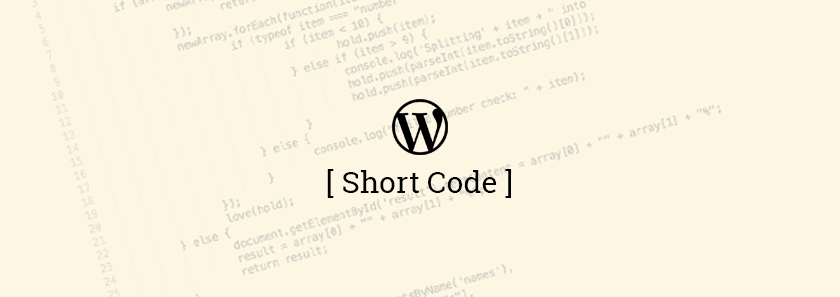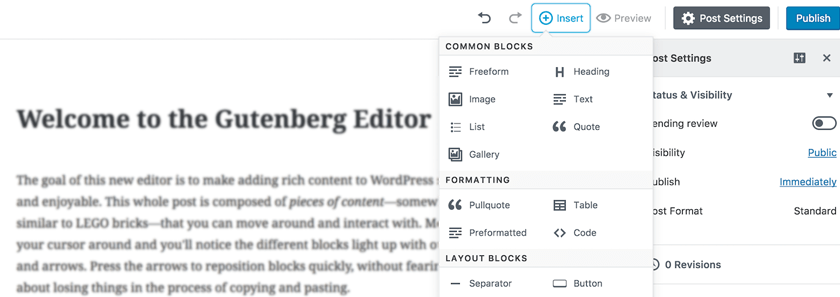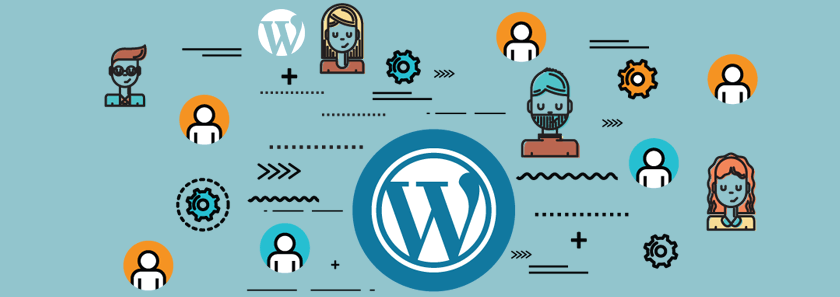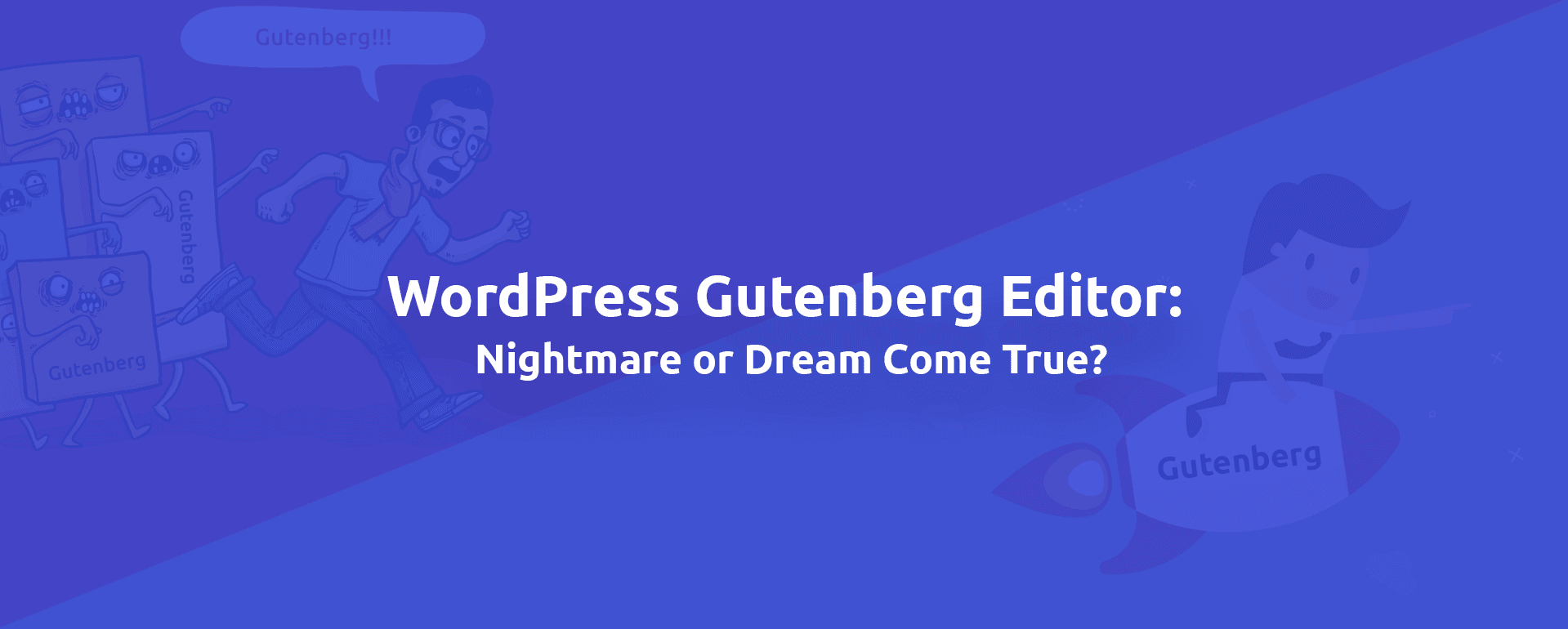Over the last few years, WordPress has taken the virtual world by storm on many aspects. Especially for website owners and bloggers, nothing could be better than WordPress. The impact is so massive that now people want to divide the web development culture into two eras, before and after WordPress.
The ‘before’ era required the substantial amount of knowledge on languages like HTML, PHP, Python and much more if someone wanted to create a dynamic web-page. WordPress has made life more comfortable for the designers in that regard.
Due to its flexibility, minimum knowledge of these languages will make it possible for you to create eye-catching websites in the shortest period if you can groove WordPress basics.
On top of that, due to many excellent free themes and plugins, costs for creating websites have decreased to a considerable extent. It was no surprise that WordPress would become the favorite platform for web designers and developers in the blink of an eye.
WordPress was very much serving all the purposes of web designers and developers for all these years. With the advancement of online sphere, new demands emerge, and new challenges appear.
It is quite sturdy to hold on to the top position without being updated or without bringing changes. WordPress has finally understood that and decided to bring a new editor called Gutenberg on the platform so that it becomes even more accessible to design a site.
Requirements for web language skills are going to be limited to the most considerable extent because of WordPress Gutenberg.
The feelings are mixed among the WordPress enthusiasts.
Some think that this editor is going to limit the things you can do with WordPress, while others believe it will enhance the ranges of accessibility.
In this article, I would like to shed some light on how Gutenberg looks like, and bust some myths that are quite common without little to no justification.
What is Gutenberg?
WordPress Gutenberg editor is named after the inventor of the printing press, Johannes Gutenberg. The actual goal is to make sure the new users can bypass the usage of shortcodes and HTML for getting their job done.
Developers are yet to complete the whole design, and the development stage is still ongoing. WordPress Gutenberg is still in beta phase, and you can’t run this on production sites yet.
The development team is more than happy to the feedback from the users who tries the beta version out. They will make changes and update it accordingly.
Gutenberg will be officially merged into WordPress 5.0 very soon, and it is expected that more than 100,000 active installs will take place sooner than one can imagine. Many bugs and issues will be fixed with this new tool as well.
The significant change in developers’ eyes is, making content layout building possible. In previous stock editors, the developers only had to work with articles. They are hoping for a better experience.
When the beta stage is over, WordPress will still be making changes and updates in Gutenberg. They have plans on releasing new updates every week.

What’s The Concern?
Complex
WordPress Gutenberg has already received some criticism from many developers and users, the major one being many features don’t work correctly or are too complicated to use.
Due to new versions changing previously implemented features and UI, people are finding it hard to cope up with it.
Delay Release
Another major criticism is, WordPress Gutenberg is taking quite a lot of time to be released fully. It’s no secret that Gutenberg will change the WordPress dynamics for good, so people are trying to keep themselves ready for adapting to it.
Some developers haven’t started their website yet as they would like to do that when Gutenberg finally arrives and keep themselves updated with WordPress’s advanced functions.
Due to the delays of the release date, these developers are not able to start their websites without concerns.
Some of them are quite worried to start their work right now as they might find it difficult to maintain a website with WordPress Gutenberg which wasn’t designed with it. As WordPress is not revealing a specific release date, the developers are getting somewhat a bit impatient.
Loyal Community
Both of the major concerns are quite understandable if you put yourself in those developers’ shoes.
They have been loyal to WordPress for ages, a system which has never changed itself too much. It worked out quite well for those designers, and they could get their jobs done without that much issues and challenges.
Many didn’t want WordPress to change the current editor as they believe it gives them immense freedom regarding coding and designing.
When WordPress Gutenberg was first announced, they were concerned as they thought it would take their freedom away.
When the beta version arrived, it had a lot of bugs and broken functions. It gave them a belief that the new addition is not going to be too pleasant.
Well, in my opinion, it’s a bit harsh for Gutenberg to be honest.
Concern About The Support
As many features are yet to be implemented adequately and experimenting is still going on, it is quite understandable that many of them won’t work without any hassle.
WordPress and their development team are addressing all these concerns.
They are now trying to resolve the issues and concerns shared by the users who have already taken a glimpse of the beta version.
WordPress is more than open towards suggestions from literally anyone, and they would appreciate any constructive criticism for making Gutenberg flawless when they release it entirely.
They have promised that WordPress Gutenberg is worth all the trouble and delay.
Real Issues With WordPress Gutenberg
Taking the promises of WordPress into consideration, the users might have some fresh air to breathe on. But still, there are some specific systematic concerns which might push some users away from the platform to which they were loyal for quite some time.
Here is a list of things WordPress must find a way to bypass or resolve:
Lesser Focus on Content Creation
With Gutenberg, days of composing in the web browser are going to end. As WordPress Gutenberg’s UI is majorly focused on the layout of the content, content creation might get lesser focus.
Though the number of people who compose posts in the post window is nothing but a fraction, letting this option go might hurt some.
Additional Steps
Due to more options being added, now the users might have to go through some additional steps to do day to day simple tasks.
For instance, updating pages will take two clicks instead of one.
Tricky UI
The UI is still a bit tricky for the majority. Due to non-descriptive icons, people might find it difficult to use them firsthand with clues to their functions.
The admin menu has three columns that are not distinguishable in the first look and will be confusing while scrolling around with smaller sized displays.
And the most significant issue that might occur is the positioning of Metaboxes. Don’t panic if you don’t find it straight away; it’s hidden in the extended setting option beside the editor.

Tough for Shortcode User
You won’t be able to execute shortcodes in paragraph blocks or text columns like before. For using shortcodes, one has to place them in the shortcode block. Dealing with inline content has become tough due to that.
Some people thought this feature would break existing pages. It was not true eventually as shortcodes in existing pages don’t break.
Play by The Rule
Due to images having their own block, you won’t be able to wrap text around them. Not just images, all sorts of embeds have their blocks, and you have to play by WordPress rules.
Accessibility Issue
The accessibility issue is another major thing which should be addressed before releasing WordPress Gutenberg. These issues lie in using backend Gutenberg and also on content output on the frontend.
If WordPress doesn’t do something about these issues seriously and soon, it won’t be possible for them to hold on to the top position they are currently at in the web development and blogging universe.
It’s Not All Bad, Is It?
WordPress didn’t take all the trouble of making life difficult for their users by any possible means.
Some of the claims against WordPress Gutenberg are nothing but myths.
Moreover, Gutenberg has some features which will solve many bugs of the past and give such new features which will open more options for the users.
Here is a list of things which the users will enjoy when Gutenberg comes:
At Last WordPress’s Own Visual Editor
Whenever we work with editors of any kind, the most comfortable ones are the ones which are visual.
WordPress has always desired to give its users a visual editor which takes care of all. The visual editor of WordPress will be more intuitive for the new users who don’t know coding.
Commenting
The users can now store block information in their HTML comments directly, and they will only find it on the backend.
Won’t Break Your Website
Unlike many other editors, Gutenberg won’t break your website when you disable or uninstall it.
All the things that you have done with Gutenberg installed will still stay, and the look of your website won’t turn into a horrible one overnight.
Just the HTML comments will render in the page source. This is a massive improvement as none of the other editors offer such freedom.
Though you can’t uninstall it when WordPress 5.0 rolls out, you can use “Classic Editor” plugin if you want to stick around with the old editor.
This particular point busts most of the myths as Gutenberg is not forcing you to use it by any possible means. You can enter or exit whenever you want without paying any reparations.
Easy Copy & Paste
While copying and pasting things like lists, paragraphs, headings and many other similar sorts of content material, previous editors used to make a mess of it.
Now that never happens, and the pasted contents look exactly like the source material.
Freedom of Block Customization
The best part about it is being able to create own blocks for customized content and using them over and over again.
Though it depends heavily on layouts, this improvement will take Gutenberg places.
Easy Proofing
Proofing content was never more comfortable before, as now HTML5 tags will enable you to proof the created content.
The best part is, these functional features will inevitably improve, and most of the drawbacks are more likely to go away in the upcoming days.
Some of the issues I have mentioned in the previous section of this article, are going to be resolved with the features Gutenberg will give you. Probably it will take some more time to get used to, but that wait is worth.

How Do The Pros Overweigh The Cons?
You might be asking yourself the question, how is it possible to compare and contrast these pros and cons?
For doing that, the first and foremost thing must be not being too judgmental. Only because something is new and you are not used to it, doesn’t necessarily mean that the thing is outright bad.
Here is a list of things which proves the benefits are more than worthy of the changes:
Compatibility with Other Editor
No other editor would give you the access to go in and out without breaking your website.
Gutenberg won’t mind if you make changes to a website with some other editor though you have created it with Gutenberg. It enables you to get the best of different editors.

Block Gives You Freedom
The use of blocks has become more important and significant with the introduction of Gutenberg. It consumes more time initially, but in the long run, it saves a lot of time.
Most of the developers use the same styles and similar kind of designs in their posts for maintaining their trademark.
If they make custom blocks to serve their purposes, undoubtedly they will be able to work faster in the future because all they would have to do is to access the custom blocks.
Easy as You Need
Though Gutenberg deals with content mostly, not styling, you can copy and paste things without issues. So the raw style of your post remains here.
On top of that, themes take care of most of the styling trouble.

More User on WordPress from Diverse Backgrounds
The most important part is, Gutenberg will increase accessibility of users from diverse backgrounds. People, who don’t have coding knowledge to a particular extent, would still be able to build pages here.
More users and developers mean more suggestions and updates which will make the platform even better in the future.
It Will Get Better with Time
Most of the criticism Gutenberg receives is due to still being in the process of development.
As they have already resolved many of the raised concerns, it is likely that they would take care of the currently existed problems as well before they release it.
Should You Use WordPress Gutenberg?
Whether Gutenberg will be the end of WordPress or the beginning of a new era, is the burning question right now.
Gutenberg is something which gets lots of traction and hours after hours are spent for this discourse.
Taking those into account, I can say that most of the users are quite excited about this editor as it increases accessibility, but they are very concerned about how things are going to be implemented in it.
Basically, most of the myths that we currently hear about Gutenberg are due to people getting panicked, not because of Gutenberg’s existence.
WordPress needs to be very cautious about the future of the platform. If things go wrong, it will be horrible for both the users and the platform itself.
What we would like to see from WordPress is, bringing step by step changes. This will start making the users well-inform and enable them to adopt the new changes.
If the changes come overnight, then many users will feel alienated, and they won’t be able to find WordPress as they know it. This might result in losing those users for good and hurting the reputation of the platform as well.
However, I think WordPress is on the right track till now as they are letting the users use Gutenberg for getting first-hand experiences and understand the changes.
My Verdict
Gutenberg will come and start a whole new beginning for WordPress. WordPress won’t be the same as before, for sure. The changer is for a better future.
As the editor will get updates every week, it is quite evident that WordPress will try to solve any issues the users might face while using Gutenberg.
First few days might be rough, but when we get to know all the ins and outs of Gutenberg, WordPress will be better than ever.
What you should do right now is, getting the first-hand experiences and continue to notify WordPress about the issues you face, so that initiatives can be taken.







No Comments